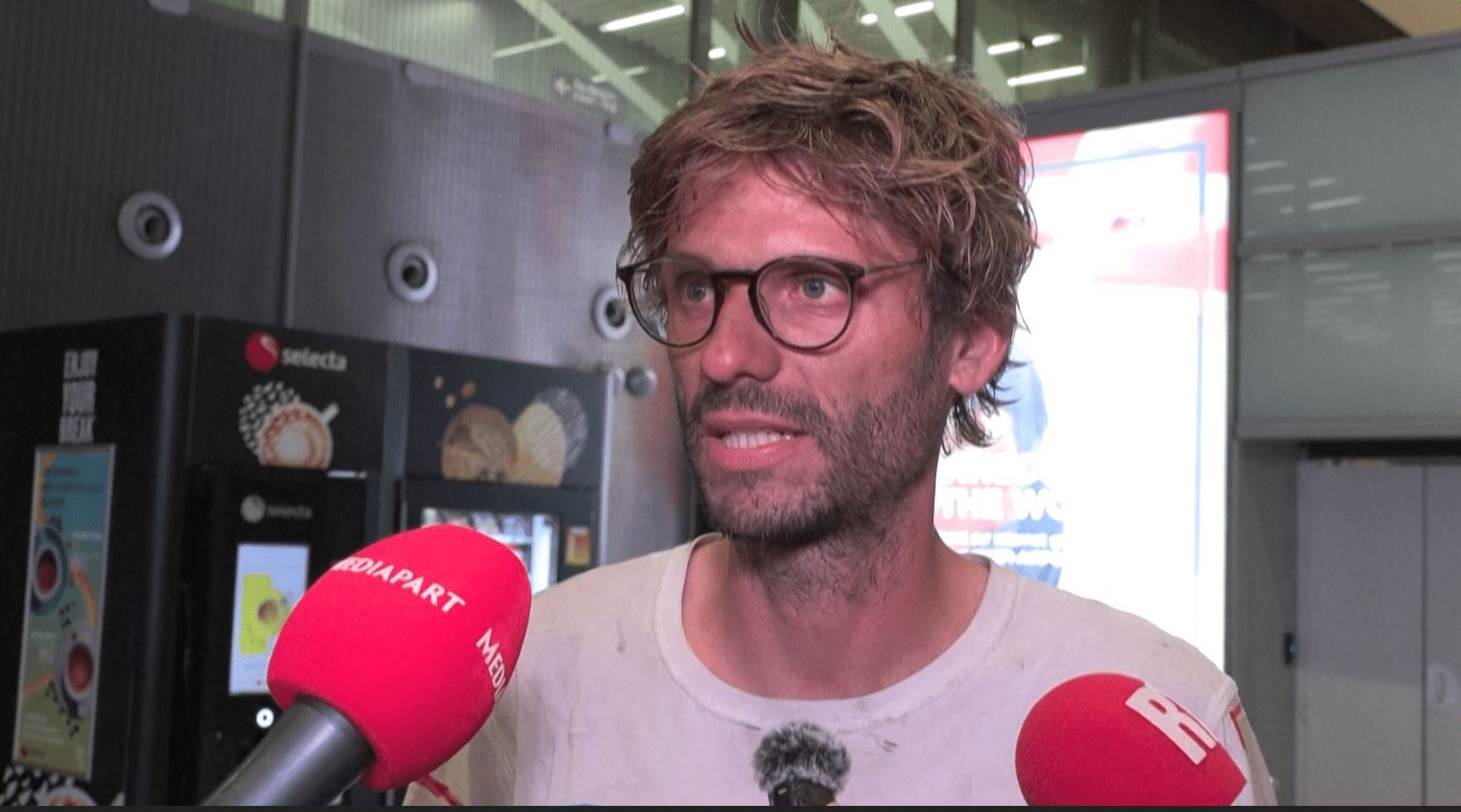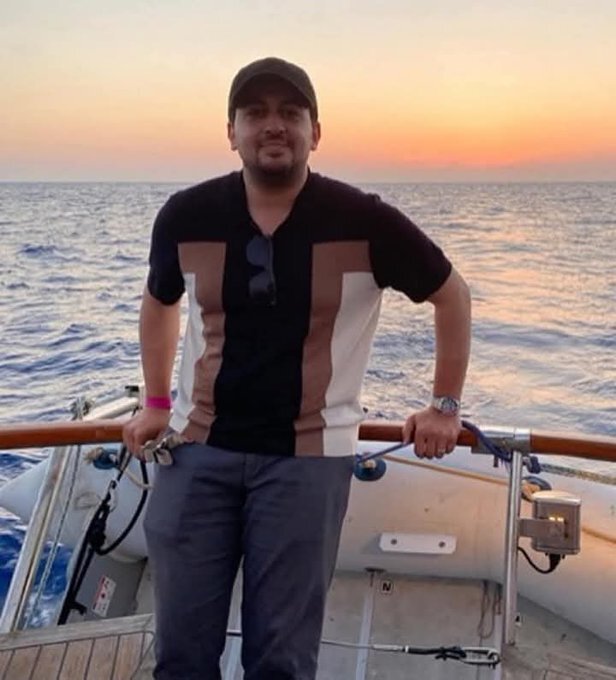‘They called It detention; we call it kidnapping’; 18 hours of confinement and starvation on the Madleen Ship

The detention of 12 human rights activists aboard the Madleen ship, operated by the Freedom Flotilla Coalition, occurred after the Israeli occupying army intercepted the vessel on Monday morning as it was en route to the Gaza Strip to break its blockade.
French doctor and activist Baptiste André, upon returning to Paris, told Al-Araby Al-Jadeed newspaper that the Israeli occupying army stopped the Madleen in international waters and forcibly transferred the crew to occupied territories, where they were detained under very harsh conditions.

The French doctor explained that an Israeli commando unit of about 80 soldiers, supported by warships, surrounded the vessel at 2:30 a.m. last Monday, when it was 100 nautical miles from the Palestinian coast.
He emphasized that the seizure of the Madleen occurred in international waters while the ship was moving entirely legally. He said, “We didn’t approach any border and were stopped on our legal route in international waters.”
He added that Israeli forces took control of the boat by force and confined the crew in the lower cabin for 18 hours, providing limited food and water, until they reached the port of Ashdod.
He continued that the Israeli soldiers locked the cabin doors and kept the activists under constant surveillance before transferring them to a detention center near Ben Gurion Airport.
André explained that the Madleen’s passengers were subjected to thorough searches using police dogs and were then transported in sealed buses. The Israeli soldiers treated the 12 human rights activists on board harshly, depriving them of sleep and food for extended periods and refusing to provide information about the location or duration of their detention.
He also revealed that Palestinian lawyers assigned to defend the passengers were mistreated by Israeli immigration authorities. They were expelled and insulted while attempting to perform their legal duties, despite their requests for a suitable environment to meet with the detainees and explain their rights.
André disclosed that the Israeli authorities presented them with a document titled “Deportation Order,” which included a fabricated admission of their illegal entry into Israel—a claim he completely rejected, emphasizing, “We didn’t enter Israeli territory; we were kidnapped at sea, and the Israeli army forcibly brought us to its territorial waters.”
He added that he refused to sign the document, and eight of his fellow passengers on the Madleen also refused to sign and remain detained in a facility near Ben Gurion Airport. These individuals include activists from France, Germany, Turkey, and Brazil.

Egyptian-French journalist Omar Fayyad, after his deportation, said in a video interview with Al-Araby Al-Jadeed at Paris’s Charles de Gaulle Airport that the occupying forces quickly began attacking the Madleen, stressing that the attack took place in international waters, after which the Zionist forces’ harassment and mistreatment of the activists began.
Fayyad, explaining why the Madleen was kidnapped rather than detained by the Israeli regime, stated, “Many of the volunteers on this trip repeatedly say they were kidnapped, not detained, because they were taken from international waters and brought to Israeli waters.”
He further noted that the point where the Zionist occupying forces boarded the Madleen was more than 100 miles from the Gaza Strip, which “proves that the ship was on a legal route in international waters.”
Fayyad continued that after the Zionist forces took control of the ship, they drove it for about 12 hours. When they reached the port of Ashdod, they circled around before docking. He said the crew did not understand the reason for this, suggesting it might have been to keep journalists away from the area or to confuse the lawyers.
Fayyad added that the ship’s crew spent about eight hours at the port of Ashdod, where the Zionist forces began interrogating three key individuals on board who had the most influence: Rima Hassan (European Parliament member), Greta Thunberg (environmental activist), and Thiago Avila (Brazilian activist).
He added, “The Israelis took these three first and began interrogating them. They searched every part of our bodies and everything we had with us. Then they dragged us to the vehicles.”
An activist on the Madleen said that before being transferred to a detention facility at an airport—whose name he couldn’t recall, unsure if it was Ben Gurion Airport in Tel Aviv or another—the Zionist forces tried to force the activists to sign a document pledging not to return to the occupied territories.
He stated, “This document upset several activists, especially since it was a form of coercion, and they hadn’t committed any crime. They weren’t going to Israel in the first place but to the illegally blockaded Gaza Strip.”
Fayyad continued that signing the document would imply that the activists had willingly gone to the occupied territories, which is why they refused to sign it.
He noted that the Israeli occupiers applied psychological pressure on the activists through various means, such as using loud noises and disrupting their activities by moving them between detention rooms at random intervals.
Fayyad added that the activists spent around 10 hours or more in the first detention facility, noting, “It was a long time, and it was hard to track time because we didn’t have watches, and even when we asked the occupying forces about the time, they refused to answer.”